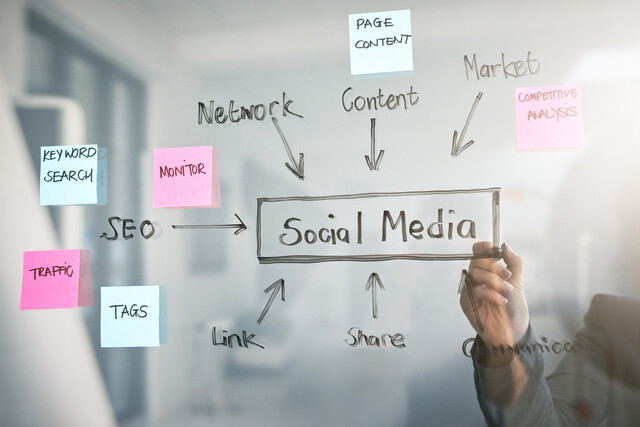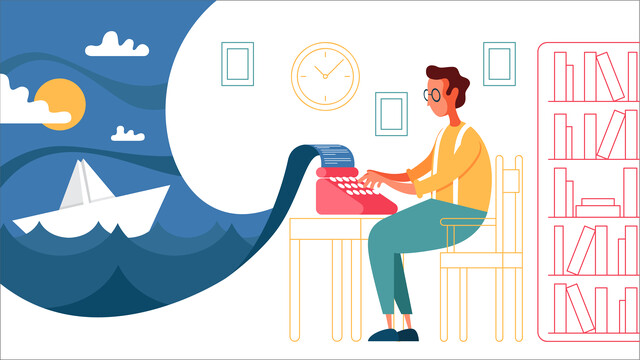Online Class: Poetry Writing 101

no certificate
with CEU Certificate*
-
13Lessons
-
23Exams &
Assignments -
3,892Students
have taken this course -
17Hours
average time -
1.7CEUs
Course Description
A Deep Dive into the Enigmatic World of Poetry: Craft, Appreciation, and Mastery
The realm of poetry is vast, intriguing, and profound. Poetry, more than just an art form, is an emotional symphony, a language that transcends boundaries, and a medium that mirrors life's intricacies. Whether you're a fervent admirer seeking a richer understanding or an aspiring poet craving mastery, this course promises a journey into poetry's heart, illuminating its nuances, techniques, and timeless allure.
Why This Course Stands Out:
-
All-Encompassing Curriculum: From poetry's rich history to the techniques that shape its tapestry, this course delves deep, ensuring students grasp both the theoretical and practical aspects of poetry.
-
Rich Pedagogy: While many courses might skim poetry's surface, ours delves into its depths. Through a mix of structured lessons, engaging assignments, and insightful essays, we ensure that learning isn't just passive but immersive and transformative.
-
Publication-Ready Training: The course culminates in guiding students to create a chapbook-a testament to their journey, their learnings, and their unique voice-poised for publication.
Course Highlights:
-
Introduction: The Art of Poetry: Venture into poetry's enchanting world, understanding its significance, scope, and the sheer magic it holds.
-
Irony and Tone: Dive into the subtle art of irony, learning how tone shapes meaning, evokes emotion, and adds layers to poetry.
-
Denotation and Connotation: Decipher the explicit and implicit, realizing how words hold dual meanings, adding richness to poems.
-
Literal and Figurative Meanings: Navigate the realms of the real and the symbolic, understanding how poets play with language to conjure vivid imageries.
-
Poetic Devices A-I: From alliteration to imagery, uncover the devices that lend poetry its unique rhythm, rhyme, and resonance.
-
Poetic Devices J-Z: Further exploration into the tools poets employ, delving into juxtaposition, zeugma, and more.
-
Rhyme and Meter: Understand the beats and patterns that give poems their musical quality, making them memorable.
-
Symbolism and Archetypes: Dive into the symbols that recur in literature, deciphering their significance and the universal truths they represent.
-
Cultural Concepts: Appreciate how poetry serves as a reflection of its cultural context, adding layers of depth and relevance.
-
Parody and Translation: Explore the art of poetic imitation and the challenges and nuances of translating poetry while retaining its essence.
-
Free Verse and Blank Verse: Delve into the liberating world of unrhymed poetry, understanding its charm and challenges.
-
Sound and Meaning: Discover the auditory aesthetics of poetry and how sound intricacies can amplify meaning.
-
Types of Poetry and Verse: From sonnets to haikus, explore the diverse poetic forms that have enraptured readers for centuries.
Real-world Insights:
-
Analyze renowned poems, understanding the techniques employed, the themes explored, and the emotions evoked.
-
Work on assignments that mimic real-world challenges, such as translating a poem while retaining its soul or crafting a parody without losing respect for the original.
Is This Course for You?
-
Poetry Enthusiasts: Deepen your appreciation, understand subtle nuances, and connect more intimately with the poems you read.
-
Aspiring Poets: Elevate your craft, weave words with greater skill, and carve a niche for yourself in the literary world.
In an era where communication is often brief and fleeting, poetry stands as a testament to the depth and beauty of language. It's a celebration of life, love, loss, and everything in between. This course is more than just an educational journey-it's an invitation to experience, to feel, and to express. Join us, and let's craft verses that resonate, touch hearts, and endure time.
- Completely Online
- Self-Paced
- 6 Months to Complete
- 24/7 Availability
- Start Anytime
- PC & Mac Compatible
- Android & iOS Friendly
- Accredited CEUs

Course Lessons
Lesson 1. Poetry Unveiled: Unraveling the Layers of Emotion and Structure
Poetry thrives on a rich tradition of form and technique while inviting modern voices to expand its boundaries. By understanding its components, poets can craft pieces that resonate across cultures and generations.Lesson 2. Crafting Emotion: Tone and Irony in Verse
Tone, an essential element in poetry, sculpts the emotional landscape through deliberate language choices and structured rhythms. By harnessing imagery and irony, poets shape nuanced moods, from the somber tones of Poe's 'The Raven' to the triumphant defiance in Angelou's 'Still I Rise.'Lesson 3. Denotation's Precision and Connotation's Emotional Depth
Through denotation, words like 'rose' maintain straightforward definitions, crucial for clarity in contexts like scientific writings. Connotation, however, allows the same word to resonate with personal and cultural meanings, painting emotional landscapes in poetry and literature.Lesson 4. Literal vs. Figurative: Poetic Language Unveiled
Poetic devices such as allegory, alliteration, and allusion enrich language by creating rhythm and connecting to broader cultural contexts. Figurative language allows poetry to resonate deeply, crafting messages that speak to universal truths and personal experiences.Lesson 5. Crafting Meaningful Verse: A Guide to Essential Poetic Tools
Alliteration, characterized by the repetition of initial consonant sounds, adds a musical quality to poetry, enhancing mood and rhythm. Exemplified by phrases like 'Peter Piper picked a peck of pickled peppers,' it captivates the reader by engaging their auditory senses and enriching the text's emotional impact.Lesson 6. Crafting Imagery in Poetry
Metaphors and similes craft vivid comparisons that capture the imagination, while oxymorons and metonymy challenge perceptions with their nuanced juxtapositions and symbolic swaps. These devices work together to form a tapestry of language that resonates deeply with human emotion and understanding.Lesson 7. Crafting Verses: The Art of Rhyme and Meter
The lesson dives into the multifaceted world of rhyme, from perfect matches like 'moon' and 'June' to more nuanced forms like slant and assonance. By exploring these variations, poets can enhance both the texture and depth of their work, offering fresh and engaging poetic experiences.Lesson 8. Symbolism and Archetypes: Empowering Insight and Understanding
Through symbolism, literature conveys messages with depth, like Blake's exploration of duality in 'The Tyger', linking beauty with existential inquiry. Archetypes enrich narratives by mirroring universal human experiences, where figures like the hero and mentor echo themes of courage and wisdom throughout history.Lesson 9. Poetic Forms as Cultural Time Capsules
The Jintishi form embodies Chinese tradition by balancing sound and meaning through its use of tonal dynamics while sonnets, particularly Shakespearean, encapsulate intense emotions and philosophical inquiries on the human experience. Similarly, forms like the villanelle and Tanka reveal cultural evolution and human introspection through their structural beauty and thematic depth.Lesson 10. Unveiling Humor: The Dual Layers of Parody and Translation
Parody blends respect and humor by exaggerating aspects of original works, exemplified by Andrew Fusek Peters' whimsical reimagining of Marlowe's classic pastoral poem. For both creators and readers, parody offers fresh perspectives, inviting new interpretations and laughter as it transforms familiar narratives.Lesson 11. Beyond Rhyme: Delving into Free Verse and Blank Verse
Free verse epitomizes poetic freedom, freeing writers from traditional constraints to authentically convey their narratives, emotions, and imagery. Blank verse, with its structured yet unrhymed iambic pentameter, maintains a balance of form and freedom, crafting dramatic encounters through disciplined rhythm.Lesson 12. Sound and Meaning in Poetry
Poetry serves as an artful dance between sound and meaning, using elements like rhyme and meter to create a rich sensory experience. This interplay captivates both the reader's senses and intellect, offering insights that transcend the ordinary.Lesson 13. Exploring the Essence of Poetry: Form and Function
Confessional Poetry emerged in the mid-20th century, using first-person narratives to break taboos and expose raw, personal emotions, with poets like Sylvia Plath and Robert Lowell as notable figures. This form of poetry serves as both an intimate revelation and a powerful tool for healing and empathy, breaking down the barriers between writer and reader.
Learning Outcomes
- Create an original poem using learned techniques, incorporating specific poetic devices to convey a chosen theme effectively.
- Define and analyze various poetic forms and devices, demonstrating their impact on a poem's meaning and structure.
- Describe how tone is crafted through word choice, imagery, and verbal structure, and interpret its impact on the reader's emotional experience.
- Demonstrate the ability to identify and analyze the use of irony in a given poem, highlighting its effect on the poem's overall meaning.
- Identify the denotative and connotative meanings in a selected poem, explaining how these contribute to the poem's emotional depth and imagery.
- Interpret the emotional and cultural nuances of words and phrases in poetry to evaluate how connotation enhances the overall meaning and impact of the text.
- Define and distinguish between literal and figurative language in poetry by analyzing examples of both from provided text.
- Identify and illustrate common poetic devices such as metaphor, simile, and personification within a poem, explaining their effects on the reader's experience.
- Create a poem using alliteration and evaluate the effect of consonant sound repetition on the poem's rhythm and mood.
- Identify and analyze the use of allegory in two literary works, explaining how hidden layers of meaning enhance the narratives.
- Analyze the impact of repetition in enhancing the emotional resonance and rhythm of a poem.
- Identify and describe the use of metaphors to create vivid imagery in a given poem.
- Define and identify different types of rhyme used in poetry, such as perfect, masculine, feminine, and slant rhyme, to create specific auditory effects.
- Demonstrate mastery of lesson content at levels of 70% or higher.
Additional Course Information

- Document Your Lifelong Learning Achievements
- Earn an Official Certificate Documenting Course Hours and CEUs
- Verify Your Certificate with a Unique Serial Number Online
- View and Share Your Certificate Online or Download/Print as PDF
- Display Your Certificate on Your Resume and Promote Your Achievements Using Social Media

Choose Your Subscription Plan
No Certificate / No CEUs
This course only
| Includes certificate | X |
| Includes CEUs | X |
| Self-paced |

|
| Instructor support |

|
| Time to complete | 6 months |
| No. of courses | 1 course |
Certificate & CEUs
This course only
| Includes certificate |

|
| Includes CEUs |

|
| Self-paced |

|
| Instructor support |

|
| Time to complete | 6 months |
| No. of courses | 1 course |
Certificates & CEUs
Includes all 600+ courses
| Includes certificate |

|
| Includes CEUs |

|
| Self-paced |

|
| Instructor support |

|
| Time to complete | 12 Months |
| No. of courses | 600+ |
Certificates & CEUs
Includes all 600+ courses
| Includes certificate |

|
| Includes CEUs |

|
| Self-paced |

|
| Instructor support |

|
| Time to complete | 24 Months |
| No. of courses | 600+ |
Student Testimonials
- "As a beginner poet, this was exactly the course I needed to help develop my knowledge and skills. The course material provided was excellent, as well as the positive feedback from my instructor. I appreciated how quickly assignments and exams were marked. I have printed off course material to use as reference to help me develop my skills and own work. Thank you and I look forward to taking another course sometime soon!" -- Tracey T.
- "I loved the course. Very informative and definitely be of help to me in writing my own poetry. Instructor was very supportive and I appreciated her comments." -- Ken V.
- "The instructor provided feedback on all essays and many exams. That's not only helpful (you get a feeling of whether you're on the right track.. or not), but encouraging as well." -- Jonathan S.
- "This instructor was so knowledgeable as far as explaining all the vocabulary involved in the many forms of poetry." -- Annie P.
- "Fantastic course and instructor." -- Lori B.
- "Instructor really inspired confidence." -- Peter D.
- "I enjoyed having you as a teacher thank you very much." -- Susan B.
- "Very efficient." -- Richard W.
- "I really appreciated that the instructor asked for essays in each section. This clearly demonstrates much more commitment to teaching the course than self grading T/F and Multiple Choice exams - though these were used as well...I sought assistance from the Instructor so often I was concerned about being a pest. Without fail, the instructor was there with direct answers or responses, and though I'm certain she had other priorities, I always got a response NLT @12 hrs. Amazing commitment - almost like being in the classroom." -- William O.
- "I think that the whole thing was useful to me. I think the instructor was excellent in this field of study...she really knew what she was doing, and what she was talking about." -- Joslyn A.
Related Courses
-
 72 hours
7.2 CEUs
Writing Help Course Bundle
+ More Info
72 hours
7.2 CEUs
Writing Help Course Bundle
+ More Info
-
 11 hours
1.1 CEUs
How to Write Short Stories for Children
+ More Info
11 hours
1.1 CEUs
How to Write Short Stories for Children
+ More Info
-
 9 hours
0.9 CEUs
Nonfiction Writing 101
+ More Info
9 hours
0.9 CEUs
Nonfiction Writing 101
+ More Info
-
 12 hours
1.2 CEUs
Advertising, Marketing and Sales Writing
+ More Info
12 hours
1.2 CEUs
Advertising, Marketing and Sales Writing
+ More Info
-
 5 hours
0.5 CEUs
Writing the Great American Short Story
+ More Info
5 hours
0.5 CEUs
Writing the Great American Short Story
+ More Info
-
 12 hours
1.2 CEUs
Write to Win: Secrets of Persuasive Writing
+ More Info
12 hours
1.2 CEUs
Write to Win: Secrets of Persuasive Writing
+ More Info
-
 14 hours
1.4 CEUs
Journalism 101
+ More Info
14 hours
1.4 CEUs
Journalism 101
+ More Info
-
 6 hours
0.6 CEUs
Romance Writing
+ More Info
6 hours
0.6 CEUs
Romance Writing
+ More Info
-
 9 hours
0.9 CEUs
ABCs of Technical Writing
+ More Info
9 hours
0.9 CEUs
ABCs of Technical Writing
+ More Info
-
 6 hours
0.6 CEUs
Freelance Writing 101
+ More Info
6 hours
0.6 CEUs
Freelance Writing 101
+ More Info
-
 12 hours
1.2 CEUs
Paranormal Romance Writing
+ More Info
12 hours
1.2 CEUs
Paranormal Romance Writing
+ More Info
-
 16 hours
1.6 CEUs
Advertising Copywriter
+ More Info
16 hours
1.6 CEUs
Advertising Copywriter
+ More Info
-
 5 hours
0.5 CEUs
Creative Writing for Beginners
+ More Info
5 hours
0.5 CEUs
Creative Writing for Beginners
+ More Info
-
 22 hours
2.2 CEUs
Novel Writing 101
+ More Info
22 hours
2.2 CEUs
Novel Writing 101
+ More Info
-
 12 hours
1.2 CEUs
How to Write Case Studies
+ More Info
12 hours
1.2 CEUs
How to Write Case Studies
+ More Info
-
 19 hours
1.9 CEUs
Creative Writing 101
+ More Info
19 hours
1.9 CEUs
Creative Writing 101
+ More Info
-
 11 hours
1.1 CEUs
Writing Effective Emails in the Workplace
+ More Info
11 hours
1.1 CEUs
Writing Effective Emails in the Workplace
+ More Info






